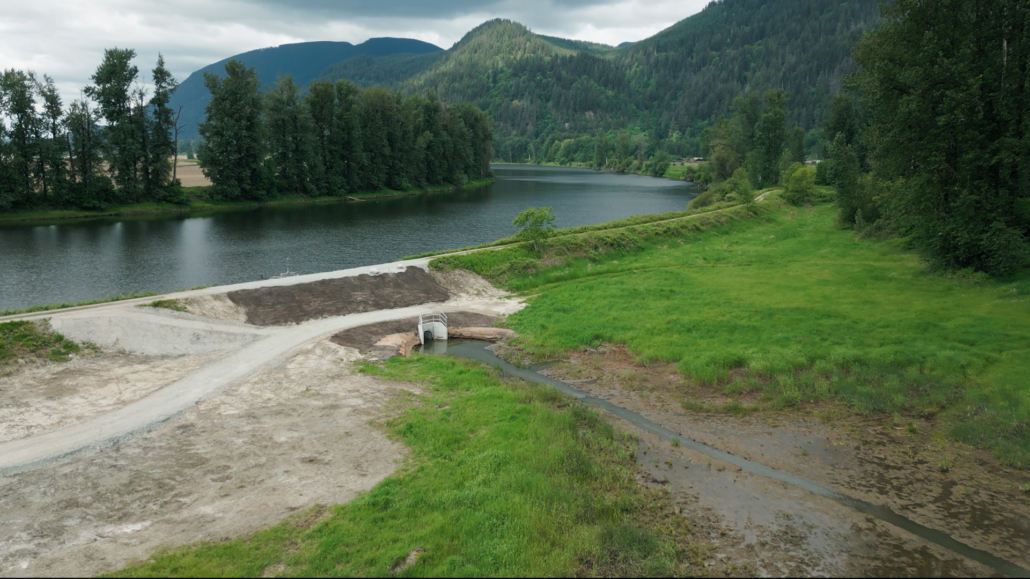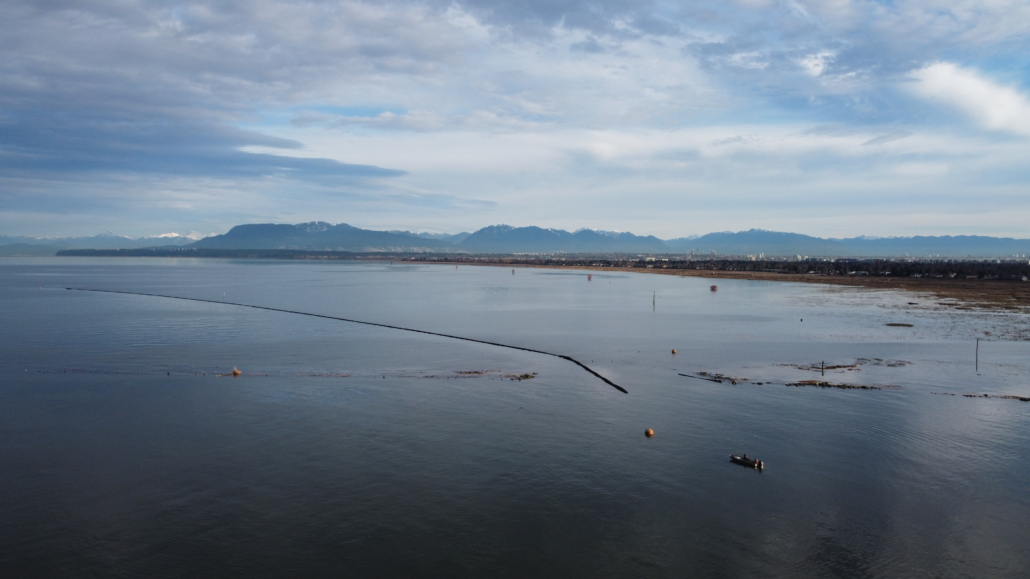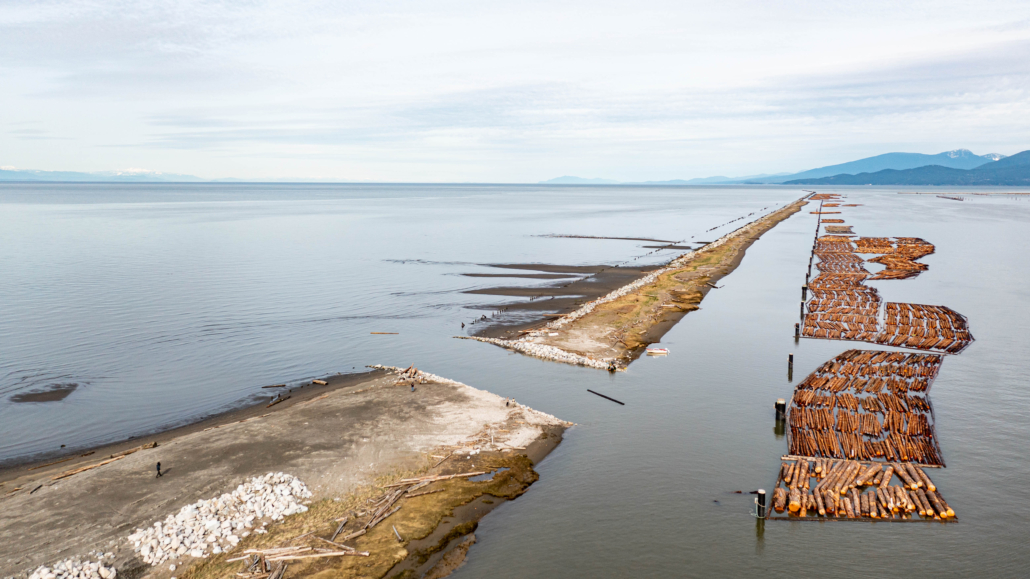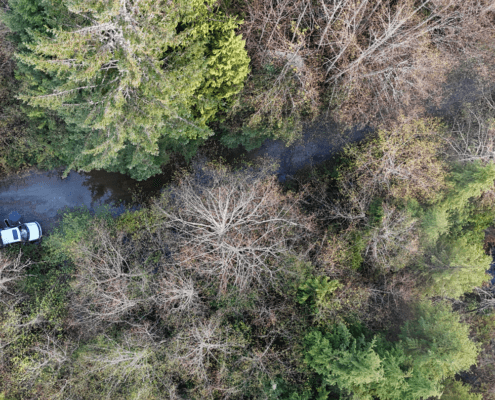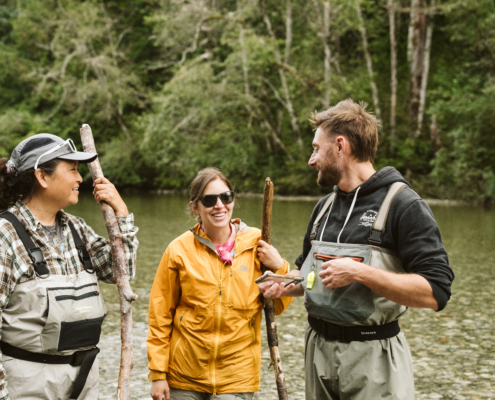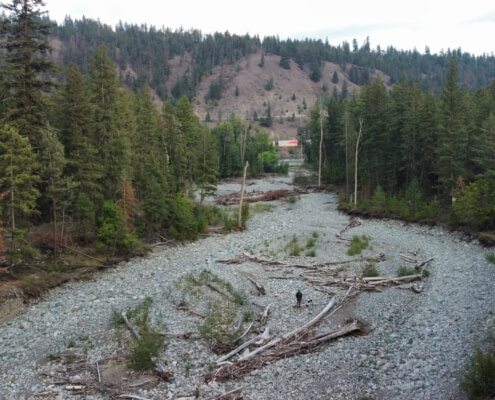Some factors related to climate change, such as warming waters, may be beyond our control, but PSF’s Climate Adaptation Program is focused on addressing the factors that we can take action on.
The Climate Adaptation Program also focuses on research and solutions to advance salmon recovery on issues related to human impacts. Some projects address challenges to habitat access caused by human activities, urban contamination of salmon-bearing watersheds, and broad-scale recovery planning for rivers where salmon have been impacted by development, climate change, and other factors.
Climate change is one of the most pressing risks to Pacific salmon populations. Salmon feel the effects of climate change at every stage of their life cycle, especially during spawning and juvenile development stages when they rely on freshwater habitats. The increase of extreme events like floods, droughts, landslides, and fires can elevate water temperatures, increase or decrease flows, alter freshet timing – and ultimately, lead to detrimental changes for Pacific salmon. Effects of climate change can block salmon migrations, reduce habitat availability and quality, increase disease and stress risks, heighten vulnerability to predation, and deplete salmon’s energy and metabolism.
However, it’s not all doom and gloom. There are actions we can take to advance climate adaptation and give salmon a fighting chance at recovery amid changing conditions. We are motivated to be nimble in response to climate emergencies for salmon and to be thoughtful in long-term approaches to salmon recovery and resilience planning in the face of climate change.

